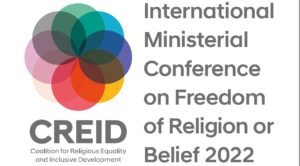This CREID Working Paper, by Jennifer P. Eggert, Maryam Kanwer and Jaffer A. Mirza, discusses inequalities caused or exacerbated by religious diversity in displacement and how humanitarian action can be aware of and responsive to this. It is based on interviews with Shi’a Hazara refugees from Afghanistan and local, national and international providers of humanitarian support in Pakistan.
This paper finds that:
- The significant challenges refugees from Afghanistan in Pakistan face are mostly due to their lack of legal status in the country and are exacerbated in many cases by poverty.
- Refugees of Shi’a Hazara backgrounds are particularly affected due to a combination of displacement, poverty, religious and ethnic inequalities. Shi’a Hazara refugees and their local supporters report frequent cases of discrimination and human rights violations.
- While local providers of refugee support have shown high levels of responsiveness to refugees’ specific needs due to their religious and ethnic backgrounds, the response of national and international actors to these religious and ethnic inequalities is more limited.
- As a result of their additional vulnerabilities in displacement, religious minority communities tend to have higher levels of distrust of humanitarian agencies and state authorities in Pakistan.
- State authorities control all refugee support in Pakistan, leaving little space for non-state actors to legally provide assistance to refugees or address religious inequalities.
- Information about support that is available to refugees is not shared effectively by national and international actors.
This paper is jointly published by the IDS-led Coalition for Religious Equality and Inclusive Development (CREID) and the Joint Learning Initiative on Faith & Communities (JLIFC).
Cite this publication
Eggert, J.P., Kanwer, M. and Mirza, J. (2022) Responsiveness to religious inequalities in contexts of displacement: Evidence from providers of humanitarian assistance to Shi’a Hazara refugees from Afghanistan in Pakistan, CREID Working Paper 12, Brighton and Washington D.C.: Coalition for Religious Equality and Inclusive Development (CREID) and Joint Learning Initiative on Faith and Local Communities (JLIFLC), DOI: 10.19088/CREID.2022.001
See also
- Refugee support in Pakistan lacks responsiveness to religious inequalities (blog by the authors)
- Religious diversity in humanitarian settings (video in which Dr Eggert and Ms. Kanwer shared key observations from this paper at the International Ministerial on Freedom of Religion or Belief)



